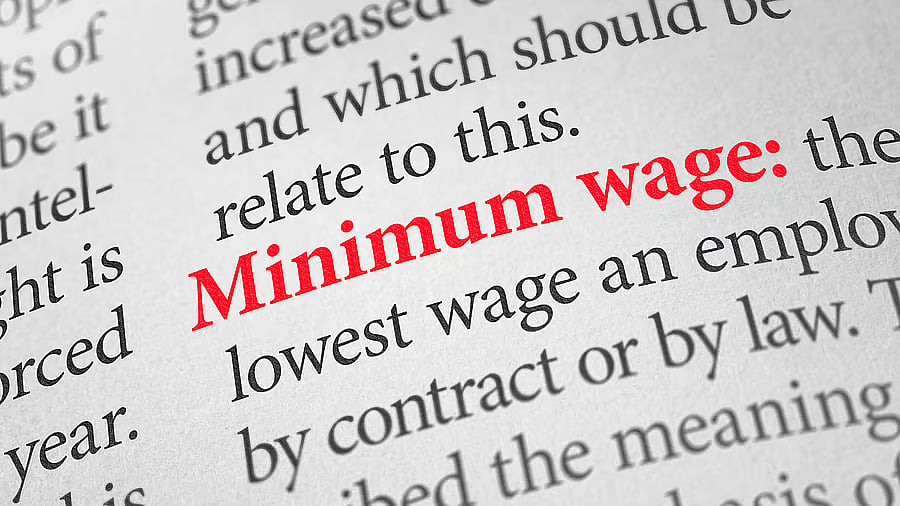
Representative image for minimum wages
Credit: iStock Photo
The labour department’s tripartite meeting to revise minimum wages in the state failed to reach a consensus between unions and managements on Thursday, as the latter rejected the very idea of a common draft notification.
The discussion was a continuation of the minimum wages advisory board meeting on July 29.
The 27-member board has equal (9 each) representation from government, labour unions and managements.
Final call by govt
While labour unions welcomed the draft notification "in principle," the managements rejected the wage proposals in the draft as "too steep". The government will take a final call on the issue.
The draft had proposed a minimum wage of Rs 23,410 for unskilled workers in zone 1 (Greater Bengaluru area).
Zones & categories
While it proposed three zones (zone 1, 2 and 3), it also divided workers into four categories - highly skilled, skilled, semi-skilled and unskilled.
Vasuki K N from the Karnataka Employers' Association (KEA) contended that the common notification for 84 scheduled employments "violates" Article 14 of the Constitution.
Explaining that there would be differences in minimum wages amongst other states (Karnataka's minimum wage will be the highest if the draft is accepted), Vasuki insisted that implementing the Reptakos Brett guidelines of the Supreme Court was "not mandatory".
Karnataka State Hotels Association's G K Shetty felt minimum wages were "unnecessary" in the hotel sector, as hotel owners provide food, clothing and housing.
Fresh talks
Sources explained that employers may approach the principal secretary and the labour minister for further discussions on the matter.
Despite its "in-principle" agreement, the Joint Committee of Trade Unions (JCTU) proposed three suggestions to the government.
Firstly, they explained that the food, shelter and clothing aspect should comprise 55% of the minimum wage, while the miscellaneous costs (20%) and children’s education costs (25%) should be the remaining 45% of the overall minimum wage.
'Fix the error'
Pointing out that the government had calculated 45% of only the food, shelter and clothing part for miscellaneous and children’s education costs, the JCTU urged the government to correct this "error".
The JCTU urged the government to consider 2,700 calories (food requirement) for one unit (male - 1 unit, female - 0.8 unit, children - 0.6) instead of 2,400 calories, while calculating wages.
Factor in inflation
It also urged the government to factor in 8% inflation as the price data was collected in November 2023.
Centre of Indian Trade Unions state general secretary Meenakshi Sundaram batted for higher minimum wages, arguing that both labour and capital migrate to states with high minimum wages.
